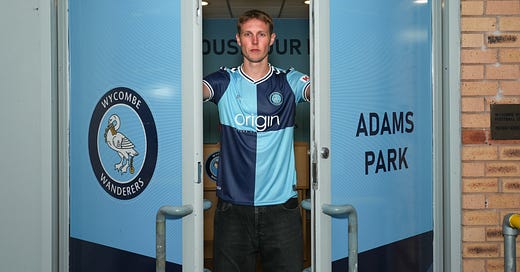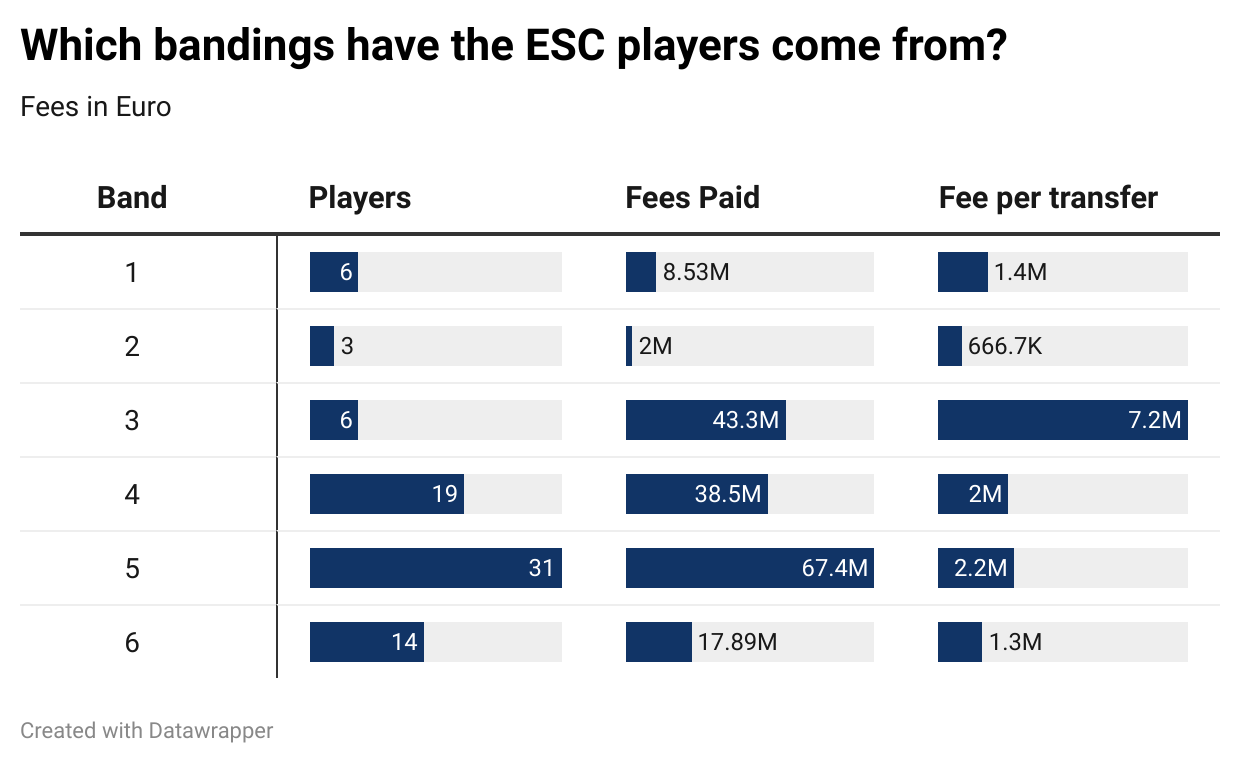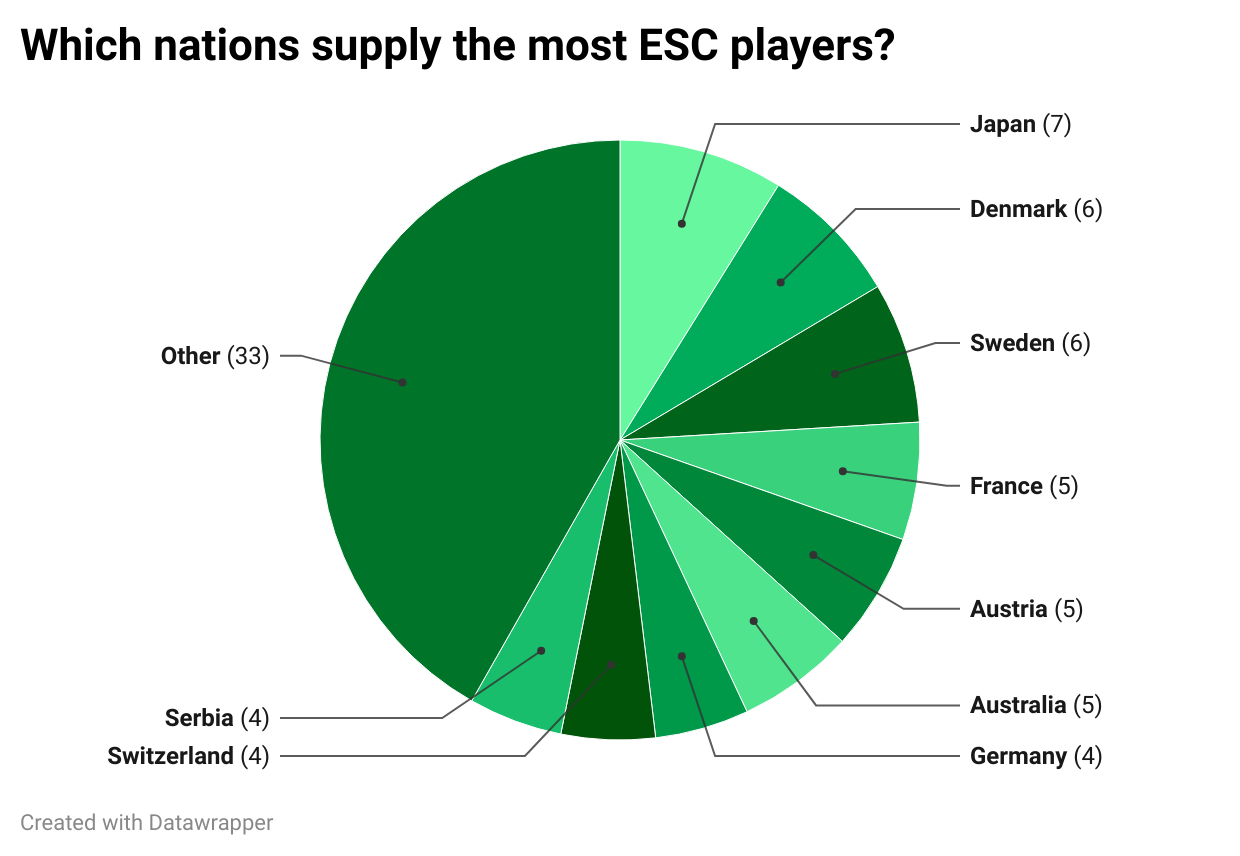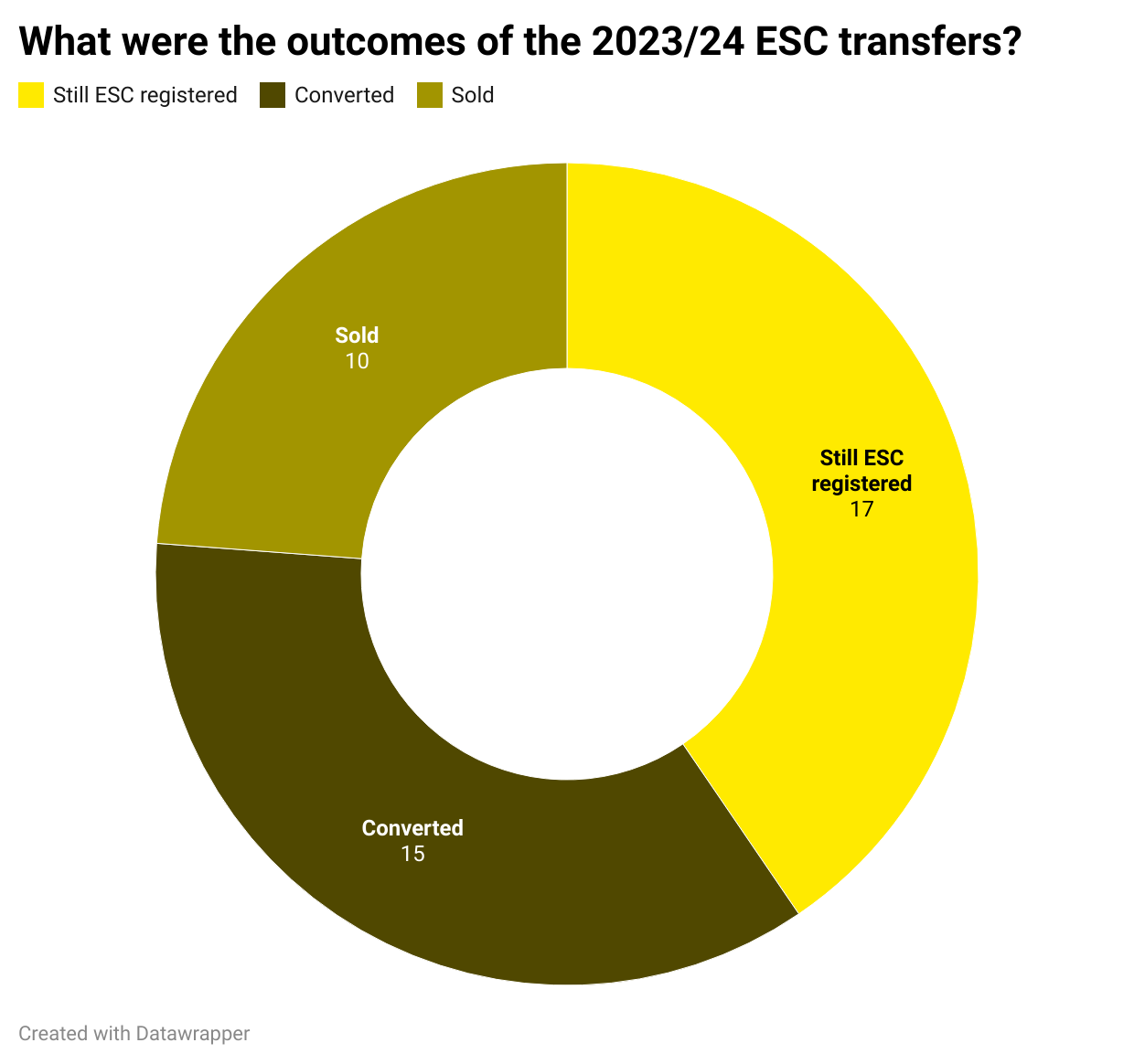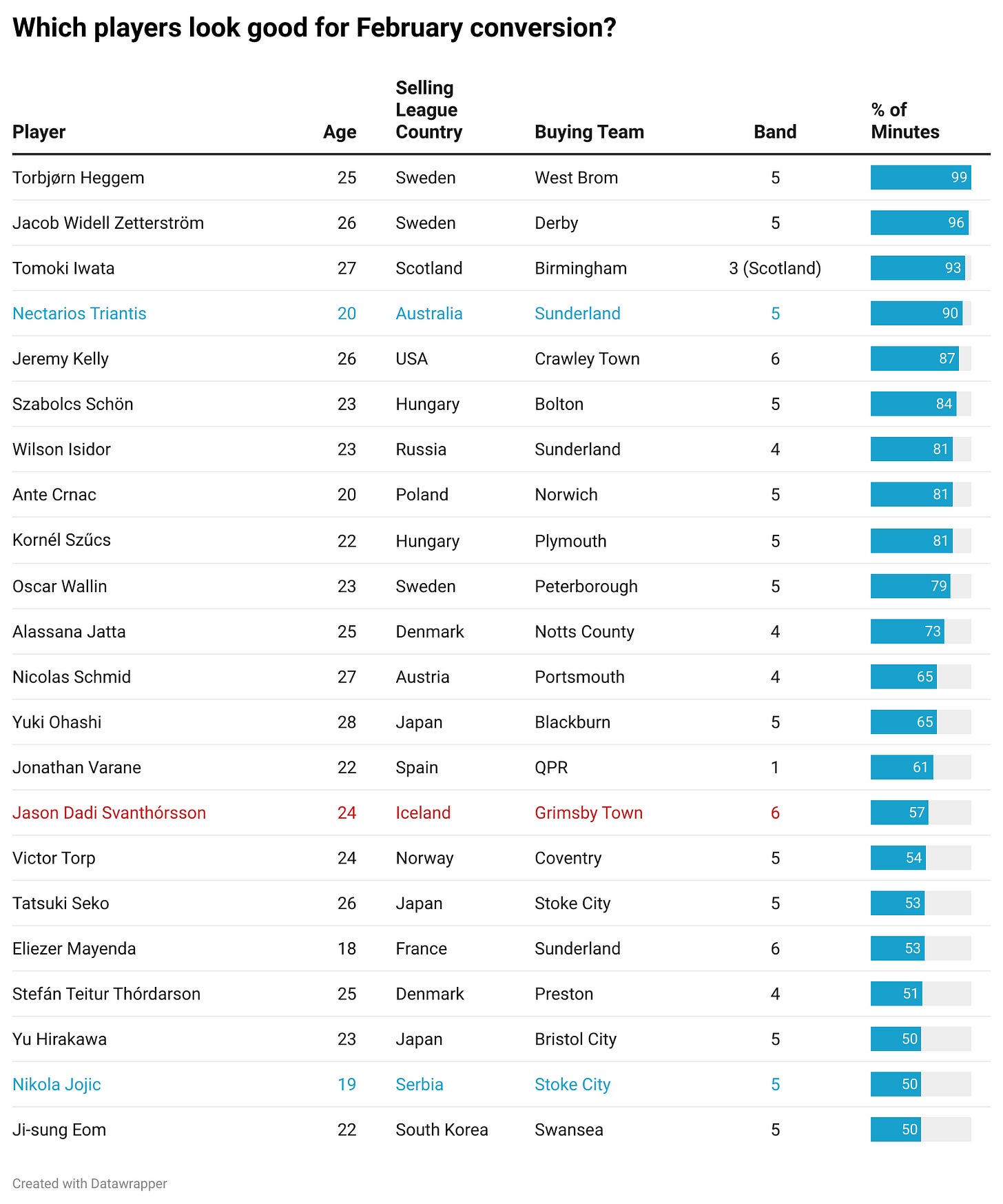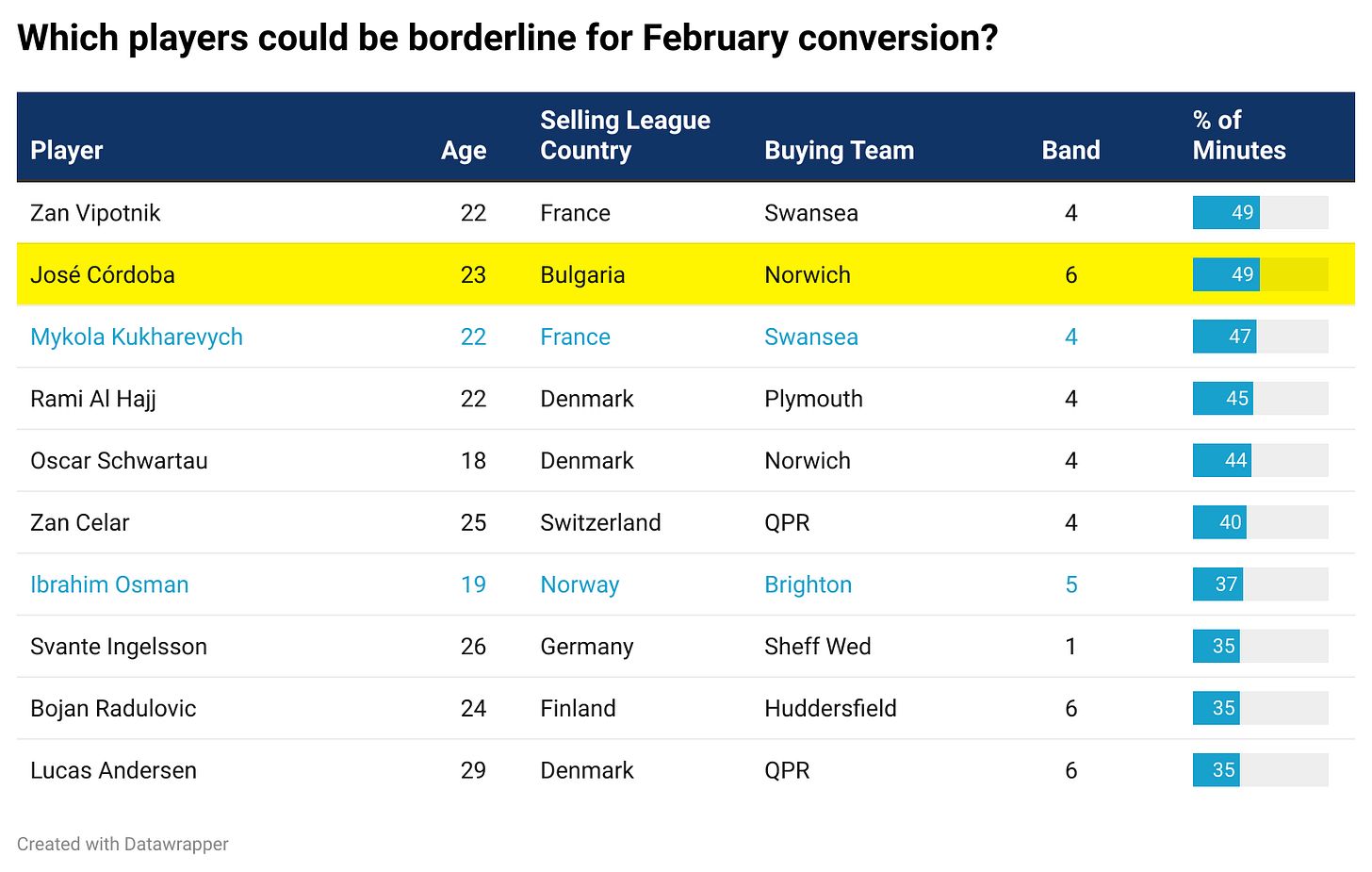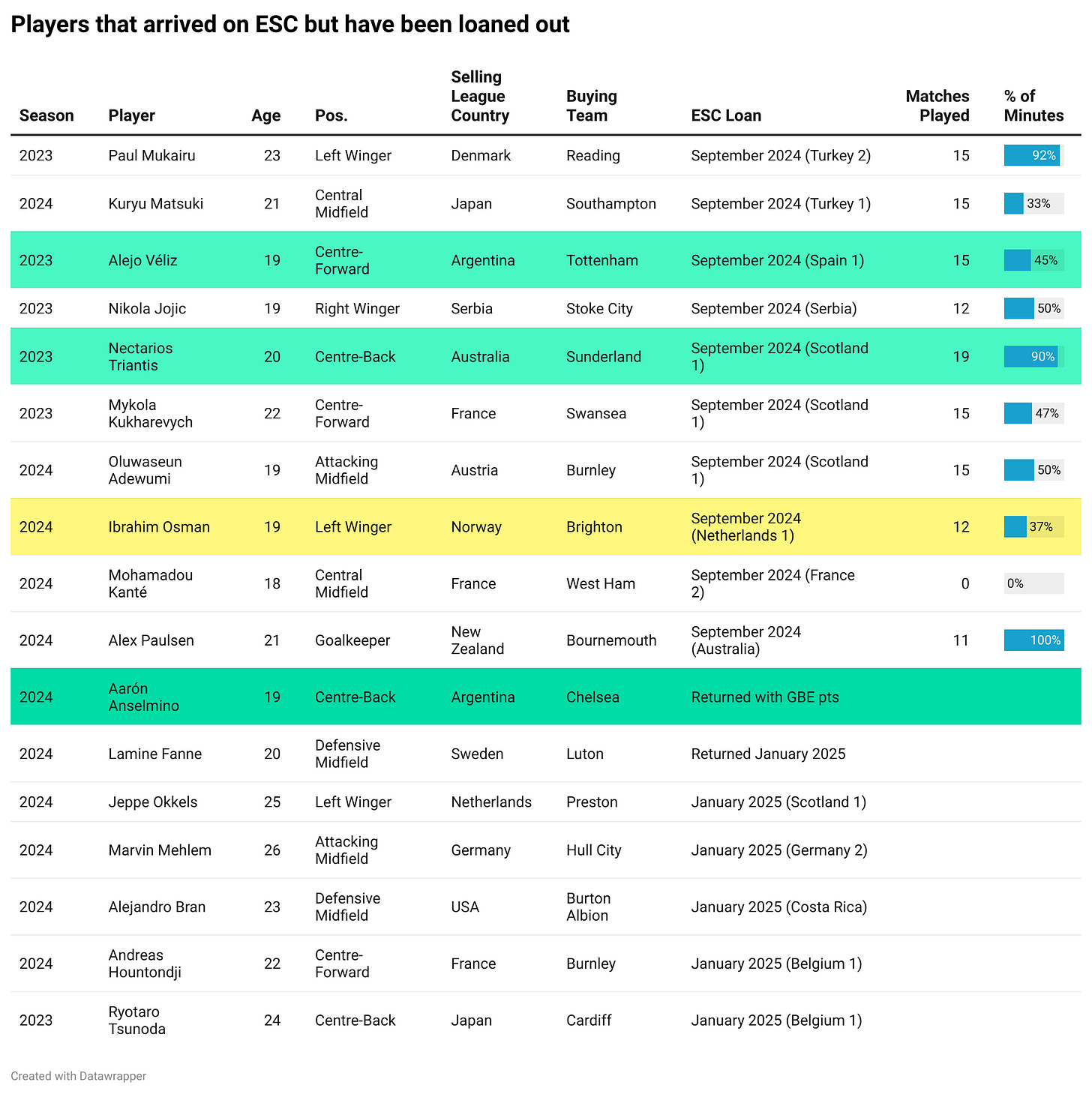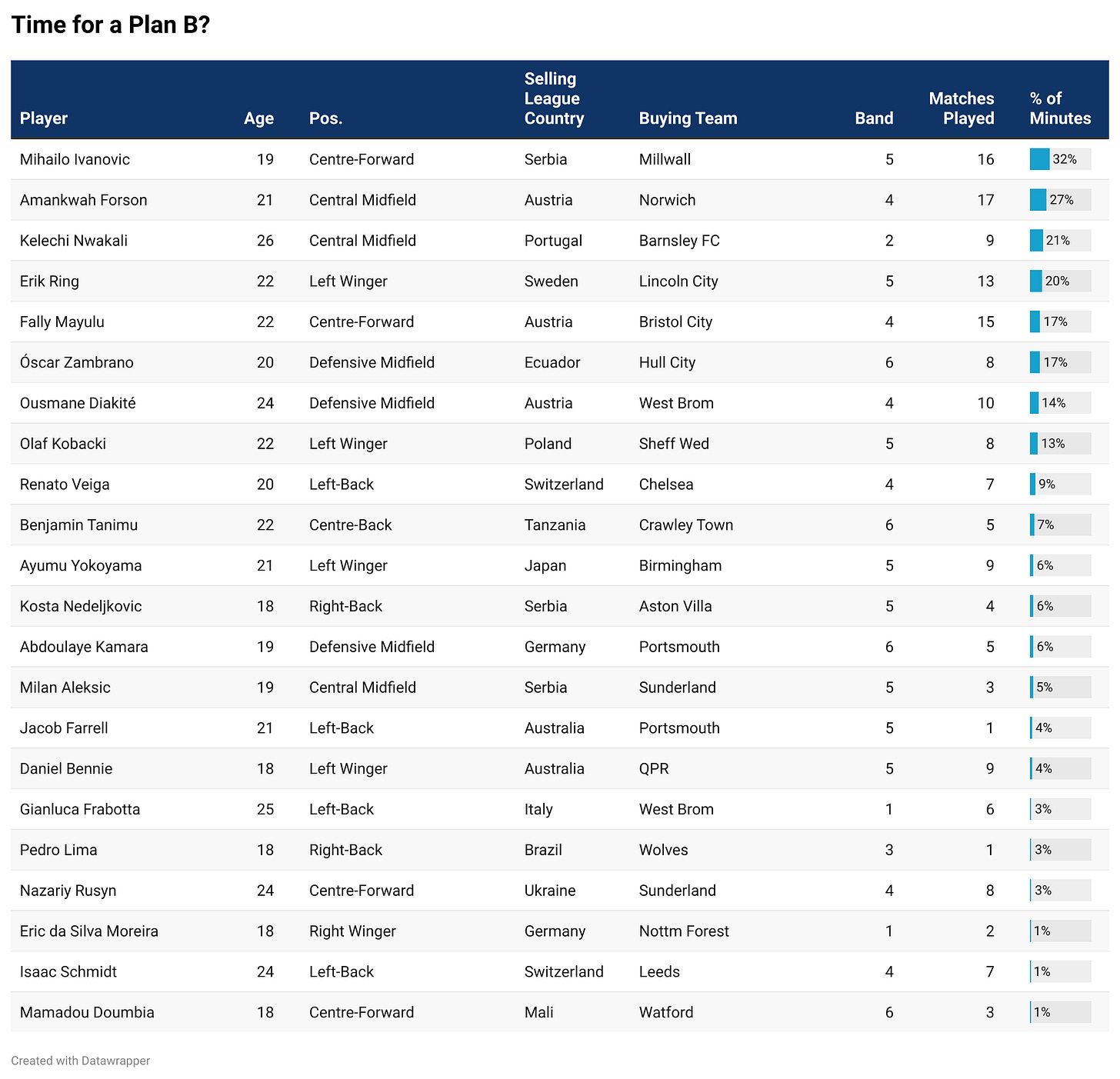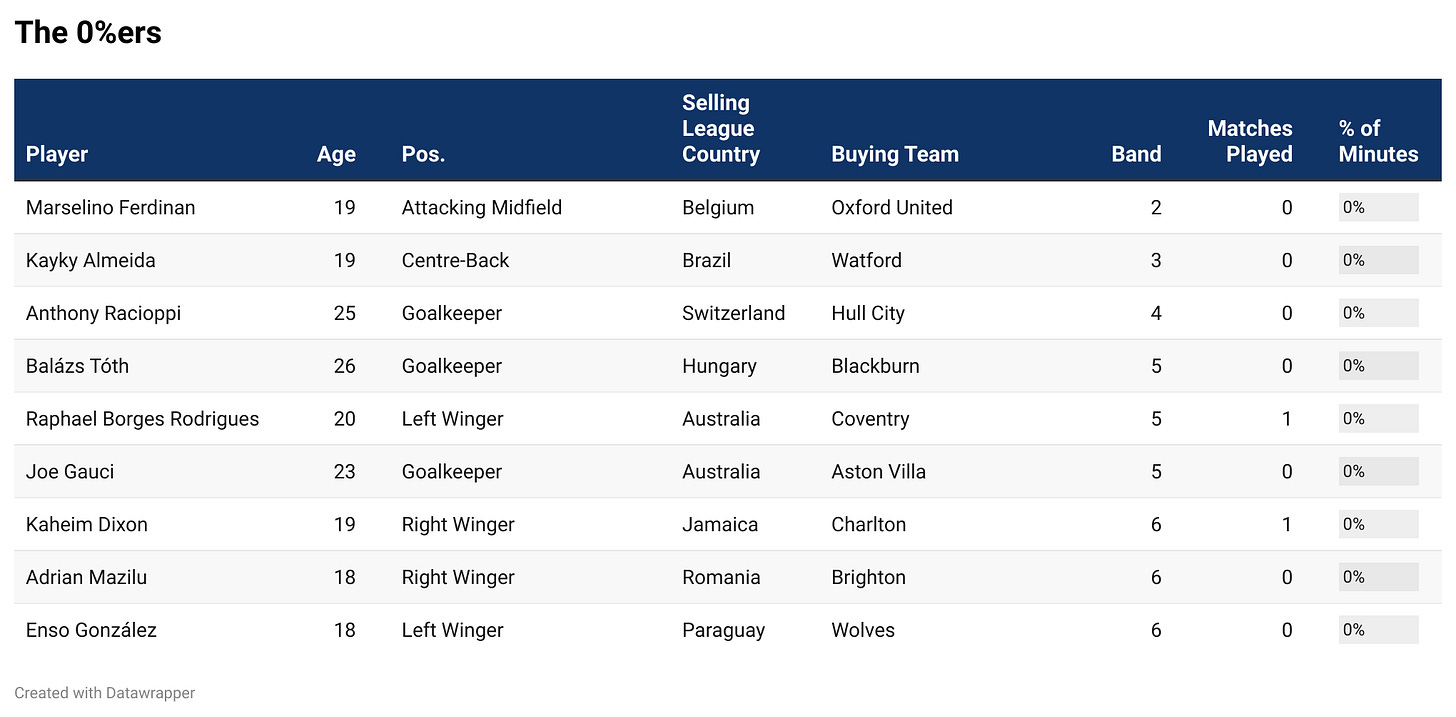The introduction of ESC in summer 2023 shook up the whole foreign recruitment plan for English clubs. For those unfamiliar with the ins and outs of ESC you may want to check out the Basics of ESC article that was published right at the beginning of this platform.
Whilst the introduction of ESC was really important, this article is about conversion from an ESC to a full GBE. This is of benefit to the club because it then allows the club to use that slot for a new signing. It also gives the player some security of having that work permit, and then also makes the player a more valuable asset, certainly for domestic transfers.
There was a slight adjustment to the regulations in 2024 which actually has a big impact in this area. Initially, a conversion from ESC to GBE could only happen after a full year. This was changed in the current FA document to be after “one completed transfer window”.
This means that players signed in the summer of 2024 could be converted as soon as the 4th February. This does mean that slots are tied in the winter window but planning does then become freed up for the next summer.
How does conversion work?
There are two main ways to convert a player:
A GBE via 15pts or autopass
A player may have been signed on an ESC intially but then circumstances change after their signing which means that later on down the line they actually do have enough points for a GBE.
A perfect example of this is Norwich City’s Jóse Córdoba. A summer signing from Bulgaria, Cordoba signed for the club when Panama were ranked outside of the FA’s list of Top 50 nations. However, their rise into the top 40 of FIFA rankings, has meant that, in the FA’s December release, Panama are now 46th in the list and so Cordoba’s 100% record of minutes for his nation now means he should be in receipt of an autopass.
Which is pretty handy when you need an ESC space for your hunt of a Czech U21 international winger…
Playing a percentage of matches and minutes in the first team
This will be the most common type of conversion we will see, and one which The GBE Expert Hub will help with in clubs’ transfer plans.
The clauses in the documentation state that “at least one full domestic transfer window” needs to have passed since the player signs.
The documentation also specifies that the player needs to play in 25% of the club’s EQP qualifying matches, which, basically, means all league matches, plus latter stages of cup competitions.
And then there is a laddered percentage of minutes that a player needs to accrue depending on which league they are playing in. The player needs to have played over this percentage of minutes “within the 12 months following the date on which he was granted a GBE”.
Playing 70% of minutes in League Two is no easy feat, but it seems to have been structured this way to have a certain protection of minutes for those lower tiers.
The key trends
Let's take a look at the ESC transfers that we have seen since the regulations changed and see if there are any interesting trends to take from them.
The best uses of ESC so far
Some clubs launched straight into the ESC market in summer 2023, Stoke City were the ultimate example. Like a kid in a sweet shop, there were lots of tempting players who Stoke identified would enable them to shoot up the Championship table. However, not all of them worked out.
There have been four Championship clubs who have used the ESC pathway on five or more occasions: Stoke, Sunderland, Norwich City & QPR. There are countless others who have never used it.
These are some of my favourite deals under ESC:
Tyler Bindon - 18 - [LAFC Academy - Reading] - Free
Reading look certain to make good profit on Bindon in an upcoming window having played him extensively since his arrival as a teenager.
Mael de Gevigney - 23 - [Nimes - Barnsley] - 300k (euro)
Another CB, and another one that has played almost every minute since his arrival, de Gevigney will now carry a full GBE and therefore isn’t in Barnsley’s ESC slots anymore.
Wilson Isidor - 23 - [Zenit S-P - Sunderland] - Loan with buy option
A different type of deal here, showing that there are many ways to use this market, but Sunderland have been crying out for a CF and they were very smart in finding Isidor to plug the gap.
Ante Crnac - 20 - [Rakow - Norwich] - 11m (euro)
A controversial choice perhaps as the value is still very questionable at this stage, but I have chosen this one because it shows that ESC isn’t just for bargain basement buys, and Crnac has actually played over 80% minutes for Norwich this season.
Where are the players coming from?
The good thing about ESC is that it really broadens the horizons for recruitment teams. The chart below shows which bandings have been used for ESC transfers.
It is clear that Bands 4 and 5 are the target leagues for this type of move. This makes a lot of sense as most Band 1-3 players that are targeted are often players that get an autopass or have 15 GBE points.
Professionals should also take note of the number of players signed from Band 6 under ESC. There are still plenty of avenues in that banding that recruitment teams should take note of.
We are able to further drill down into which leagues have supplied the players for ESC. Unsurprisingly to many, Japan is out ahead in terms of where the ESC players have been sourced from. Scandinavian countries Denmark and Sweden also show up strongly. Australia might make more of a surge having been added to Band 5 in 2024.
What was the outcome of the 2023/24 ESC recruits?
There are only three outcomes to consider for ESC players.
The ideal case is that they have either been converted or already sold on for a profit. From the 42 ESC signings that we calculated from the 23/24 season, we think that 15 of them were probably comverted. Again, it is important to stress that, at this stage, none of this is in the public domain, so all calculations are “best guess” working with the documentation as seen in the public domain.
Certainly it is within the club’s benefit to convert players if and when possible, so we are working on the assumption that clubs are converting players that meet that criteria.
10, or almost a quarter, of the players brought in on an ESC in 23/24 have already been sold, so they no longer take up a space in the ESC slots. Of those players Yakubah Minteh and Wilson Odobert were sold for huge profits, and Leo Wahlstedt was sold for pretty much the fee paid. The remainder were sold either at a loss or on a free.
This means that 17 of the players remain in the ESC slots of the clubs who bought them, which limits their options in the current and future transfer windows.
Definite conversions
Switching our attention to the unconverted ESC players signed either in summer 2024 or 2023, and looking at their progress this season, we can start to think about which players look to be in good position to convert to full GBEs, potentially as soon as February, as this is after at least one full transfer window and within 12 months of being granted a GBE.
All minutes figures are taken from Transfermarkt. These are not 100% accurate figures as they do not take out percentages of matches when players are injured/suspended/recovering from injury etc. However, they are a good first guide to see which players are clearly over the threshold, and we can assume these figures as a minimum percentage.
The vast majority of players in the table above are Championship players. Remember that from the table that Championship players need to play over 50% of minutes.
On that basis, players like Torbjørn Heggem, Jacob Zetterström, and Ante Crnac are well in for likely conversion and granting their clubs an ESC slot back. Indeed, Sunderland could be on course to get three back for the summer as Wilson Isidor, Eliezer Mayenda, and Nectarios Triantos look set for conversion. We will touch on Triantos more later on.
Blackburn look on course to convert Yuki Ohashi, whereas it seems fairly tight for fellow Japanese import Yu Hirakawa at Bristol City, and also South Korea’s Eom Ji-sung at Swansea. More investigation will have to be done on their actual available minutes.
Notts County should be looking to convert Alassana Jatta after the January window closes, especially as League One and Two clubs only have a maximum of two slots. This is also important for Peterborough with Oscar Wallin, Bolton with Szabolcs Schön, and Crawley Town can finally convert Jeremy Kelly, another great ESC signing.
However, it could be tough for Grimsby with their Icelandic player Jason Dadi Svanthôrsson. Again, more time would have to be invested into investigating his available minutes, but if they wish to convert him, then he looks to require more minutes as the threshold is 70% in League Two.
This is why talent identification for ESC slots is so important, especially for EFL League One and League Two clubs. The GBE Expert Hub specialise in particularly this type of recruitment, please contact us if you feel as though we could be of assistance.
The borderline conversions
There could be some interesting selection decisions being discussed between the clubs and their head coaches/managers in the second half of the season, or even this month.
Many of the players in the table may well require a slight hike in minutes to be able to get their full GBE in the next weeks and months. In the case of players like Rami Al Hajj, he looks to be playing his way into the first choice XI for Argyle, but for a Zan Celar, for instance, he has been bumped out of the XI of late.
Jóse Córdoba is highlighted because he now qualifies for an autopass as discussed above, whilst Kukharevych and Osman are actually on loan, which brings us to our next section.
The loanees
Some of the ESC transfers have since been shipped out on loan. In some cases, this would have been the plan all along, indeed some loans were part of the initial signing deal, but some loans have come as a result of a lack of impact.
Let’s start with Aaron Anselmino, a potential wonderkid who is part of Chelsea’s plan for world domination by buying all of the wonderkids. They left him on loan at Boca Juniors, and as a result, he played enough minutes in a Band 3 league, as well as Copa Sudamericana points, to now have enough to convert to GBE before even being part of a Chelsea squad.
Alejo Veliz, a Tottenham signing, has been sent out to Espanyol, but that is a Band 1 league, and his 45% minutes at the moment, would be more than enough to see him gain the 15pts required to be converted to GBE.
We now return to Sunderland’s Nectarios Triantis. To me, Sunderland’s business looks to be directed by people who understand the GBE/ESC rules really well. Triantis was signed in summer 2023 from Australia under ESC, he has barely played for the Black Cats, but they have ended up finding him a loan deal by which they have still been able to remove him from their ESC slots because Scottish Premiership is a Band 3 league, giving him 8pts in league quality, and he is currently at 90% of league minutes played, which would be 16 GBE pts, i.e. enough for a full GBE, therefore removing him from Sunderland’s ESC slots, despite them probably realising that he may not be of the level required for their own needs. Triantis will certainly have suitors in the UK after this Hibernian loan spell though, and now he will be the owner of a shiny, new GBE powered work permit as well. Very smart work all round.
However, let us take a look at a different case. Nikola Jojic’s first season with Stoke didn’t work out, and he has been sent out on loan, but he has returned to Serbia. This may have been the only option on the table, and there is no criticism here, but Serbia is a Band 5 league, so no chance of Jojic getting a GBE there. This means that Stoke continue to hold that ESC slot, and Jojic will return still in an ESC slot, that can then only be cleared by selling Jojic permanently.
There are a few other players in that kind of position as well. It is a tricky business if players don’t work out the way you imagined when signing them. This is why exit plans need to be thought out as well, especially for players who don’t make an impact…
Plan B required
It is obviously very difficult to know what the intentions of a club are when signing a player, especially a young player. This will also be very different when assessing Premier League club signings against League One or League Two signings.
However, all players are brought in to eventually make some kind of impact. Some of the players in the table below are looking like possibilities to do that, Mihailo Ivanovic is still very young and shown potential at Millwall. Amankwah Forson is a similar situation at Norwich, and many more of these players are young enough for most to realise that they are a long-term project, and GBE conversion will come when it comes.
However, there are players for whom a Plan B needs to be considered. Benjamin Tanimu may be one of those, especially if Crawley Town have his slot earmarked for someone else that they have spotted somewhere else in the world.
Ousmane Diakite, Kelechi Nwakali, Erik Ring, Ayumu Yokoyama, Nazariy Rusyn, and Gianluca Frabotta may be names of other players of whom the recruitment bosses may be thinking about a potential Plan B for.
The 0% ers
Some players have not been seen at all.
A number of these are reserve goalkeepers, and it is an interesting discussion to have around whether a non-first choice goalkeeper is a good use of an ESC slot.
Some of the players are very much long term projects, and some were known risks that it was worth a punt on. Marceloino Ferdinan may well be worth it for Oxford in other ways, and, indeed, came off the bench in their last match, leading to furore in Indonesia.
I suspect that loans may be the order of the day for some of these players, and it will be interesting what type of loans may be sought for them, considering what we discussed above.
The 2023 ESCs
One question that isn't answered in tbe documentation alongside the new rules to convert; what happens to the players signed in 2023 or winter 2024?
Do they still require a year of a percentage of minutes played? Is it just half a season? Or can it be any time from now?
This does affect a few players and clubs that haven’t converted yet.


